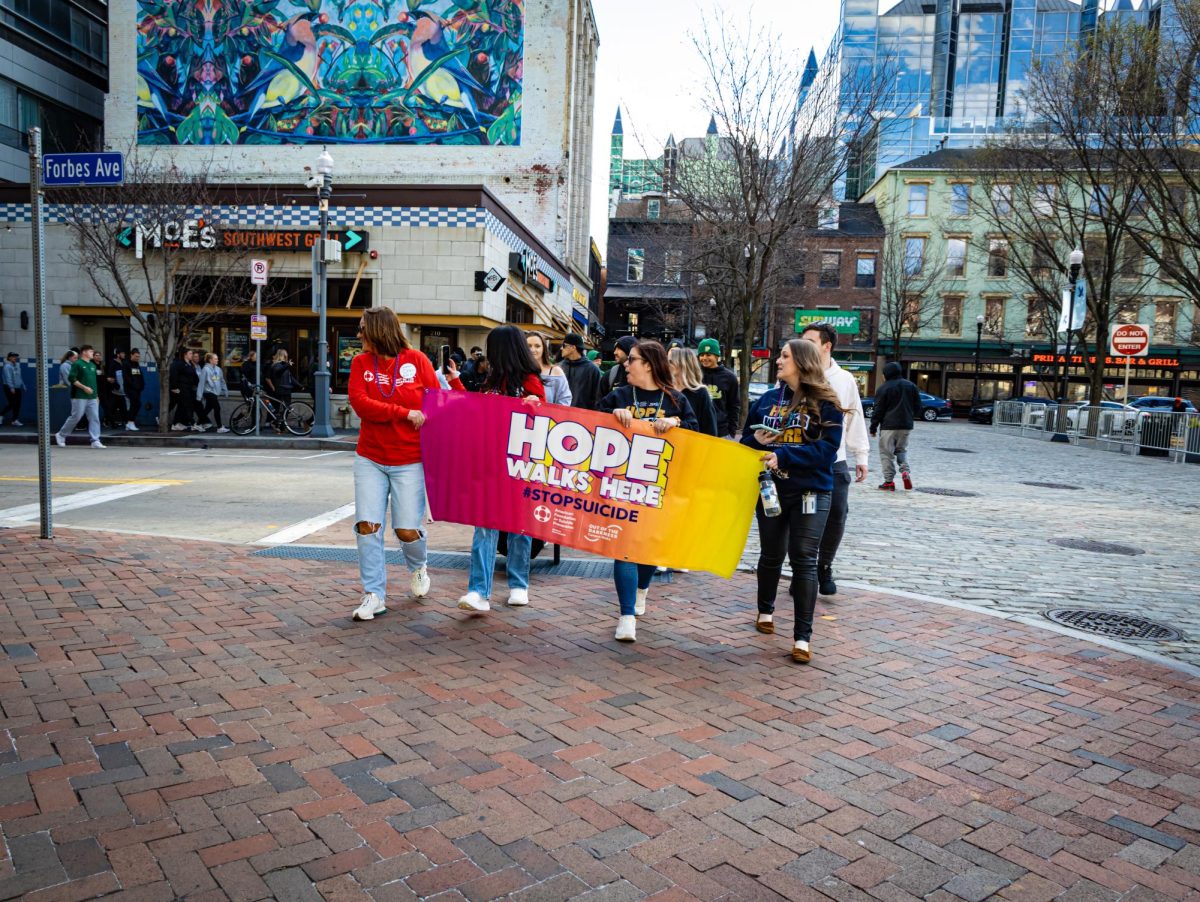On Friday, March 29, Dr. Bob McIrney and his Mobile Thriving Respite took an afternoon visit to Second Avenue Commons for a game of cards.
The Respite takes these trips weekly to local shelters, playing games, watching movies and doing other activities to give the unhoused a sense of normalcy in their situation, according to McIrney.
“When we’re doing those kinds of things, what we notice is we’re just playing Jenga or we’re listening to music together, and we have conversations with people,” McIrney said. “This is what we consider to be thriving and we feel as if it matters.”
McIrney is a professor of psychology at Point Park and founder of the Mobile Thriving Respite, a community non-profit that says it is centered around assisting local victims of homelessness to achieve a sense of comfort in their circumstances.
The program began in 2018 under McIrney to “foster thriving beyond surviving,” according to the Respite’s website.
McIrney selects volunteers from students who take his classes and that he says understand “advocate ethnography” or disadvantaged assistance.
“I truly think having to work with the Respite has been the best part of my experience at Point Park,” said Julia Pugar, a graduate community psychology major.
“I always loved taking Dr. McIrney’s classes, but the Respite allowed me the space to be with others and apply the class as a hands-on practical opportunity,” said Pugar.
McIrney declined to allow the Globe to report on the actual event.
A recent Trib article, published in May of 2023, estimated that about 200 people live unhoused in Pittsburgh.
The city has begun to take steps to mitigate the number of people living without shelter, proposing tiny house villages in open areas downtown, according to a 2024 KDKA article.
PublicSource released the council proposal in an article published in February of 2024.
The ordinance states it would allow the construction of structures for no more than 50 people experiencing houselessness.
It requires the village of structures to be fitted with restrooms and spaces for fencing, plots for gardening and dumpsters for waste.
“I am very much an advocate of it but with particular conditions,” said McIrney. “We tend to say, ‘Oh we’ve built these houses, see-ya!’”
McIrney said that, for things to change, the culture has to change. She said that the villages should be looked after in the same way any neighborhood or town would be taken care of.
“As a community, we can agree that this matters, that we’re at a critical period here,” McIrney said. “This stuff is so bad for everyone around, no one’s happy about it, no one wants it, so if we agree on that then we can agree it’s worth supporting in every kind of way.”
No progress has been made in building the tiny house village Downtown beyond the initial proposal.
“I think that [the unhoused crisis] is not as dramatic as people make it seem,” said Zane Atkins, a freshman political science major.
“The city doesn’t do enough to help the unhoused, but a lot of them are pretty chill,” Atkins said.
“I think there’s enough space and unused buildings already Downtown that I don’t get the point in building more, I think we should just revamp unused space, like unused offices,” Atkins said.
“I think that seeing it everyday is really sad and that we’re kind of just expected to avoid it and we don’t really know how to help,” said Blair Witte, a freshman dance major.
Anyone interested in learning more about the Respite and the work it does can find more information on their website, respitepgh.com.







